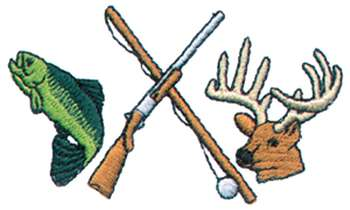The Economic Impacts of Hunting and Fishing: A Comprehensive Overview
- inthaloop1
- May 10, 2023
- 3 min read
1. Introduction
The economic impacts of hunting and fishing are wide-ranging and complex. They can be direct, such as the revenue generated from the sale of licenses, or indirect, such as the impact of increased tourism on local businesses.
Hunting and fishing also have a significant impact on the environment and wildlife. In some cases, such as with trophy hunting, the impact is negative. In others, such as with subsistence hunting and fishing, the impact can be positive if managed properly.
The economic impacts of hunting and fishing are often misunderstood or ignored. This is especially true in developed countries, where the majority of the population is far removed from these activities. However, the impacts are real and significant, and they should be taken into account when making decisions about wildlife management and conservation.

2. What is the economic impact of hunting and fishing?
The economic impact of hunting and fishing varies from region to region and can be considerable in both specific and general terms. One of the most direct economic impacts of hunting and fishing is the creation of jobs. In the United States, an estimated 860,000 jobs are related to hunting, fishing, and trapping. These jobs include hunting and fishing guides, outfitters, biologists, wildlife managers, and industry-specific businesses.
Another economic impact is the revenue generated from taxes, licenses, and fees associated with hunting and fishing. In the United States in 2018, the total revenue collected from licenses was over $400 million. This revenue is then used by the state and federal governments to fund conservation and management programs.
Finally, hunting and fishing also have an indirect economic impact. As people travel to take part in these activities, it generates revenue for the local economy in the form of lodging, dining, transportation costs, and other services. As a result, hunting and fishing can have a noticeable impact on local economies in rural areas.

3. Who hunting and fishing support?
In addition to the economic benefits that are generated by hunting and fishing, there are also other major supporters for these activities. Most notably, conservation and environmental organizations support hunting and fishing because of their commitment to preserving habitats and species.
The revenues from hunting and fishing licenses and taxes are often used to help develop conservation and management programs, which in turn help to protect animals and habitats. Many of these programs also focus on teaching and informing the public on how to be responsible in the outdoors and how to properly use natural resources.

4. What are the benefits of hunting and fishing?
Hunting and fishing activities provide numerous economic benefits, including increased income and jobs in rural areas and a greater demand for outdoor recreational activities. Aside from the economic benefits, there are also a number of other benefits provided by hunting and fishing.
Hunting and fishing generate direct support for conservation and habitat protection. The revenues obtained from hunting and fishing licenses, permits, and taxes are used to develop management and conservation practices, as well as educate the public on responsible and sustainable use of natural resources.
Hunting and fishing also provide important nutritional resources for many people. For example, in rural areas, many individuals and families rely on wild game and fish as a necessary source of protein. Finally, hunting and fishing also support local economies, particularly in remote areas, as they encourage individuals and organizations to travel to these areas and spend money while they are there.

5. Hunting and fishing: good for the economy!
Economic benefits of hunting and fishing are well established. The annual expenditures associated with hunting and fishing activities are estimated to be in the billions of dollars. Hunting and fishing has created jobs in a variety of areas, from fishing gear and guide services to restaurants and resorts.
Moreover, hunting and fishing provide tax revenue for governmental agencies. Federal, state and local taxes are paid on the goods and services associated with hunting and fishing, in addition to the money spent on licenses, permits and fees.
Finally, hunting and fishing stimulates economic growth in both rural and urban areas. Hunting and fishing related items are often sold in retail locations, generating additional revenue for those businesses. This money is circulated throughout the local economy, providing additional jobs and opportunities for businesses to grow and expand.

6. To wrap things up
Hunting and fishing are activities with significantly positive implications for the economy. Its economic benefits include increased job opportunities, increased tax revenues, and economic stimulus both in rural and urban areas.
In summary, hunting and fishing has proved to be an activity benefiting not only the environment, but also the economy. It has allowed many people to make a living, while providing the government with valuable tax dollars. It is also a great way for people to spend quality time with friends and family, while contributing to the health of the environment.




Comments